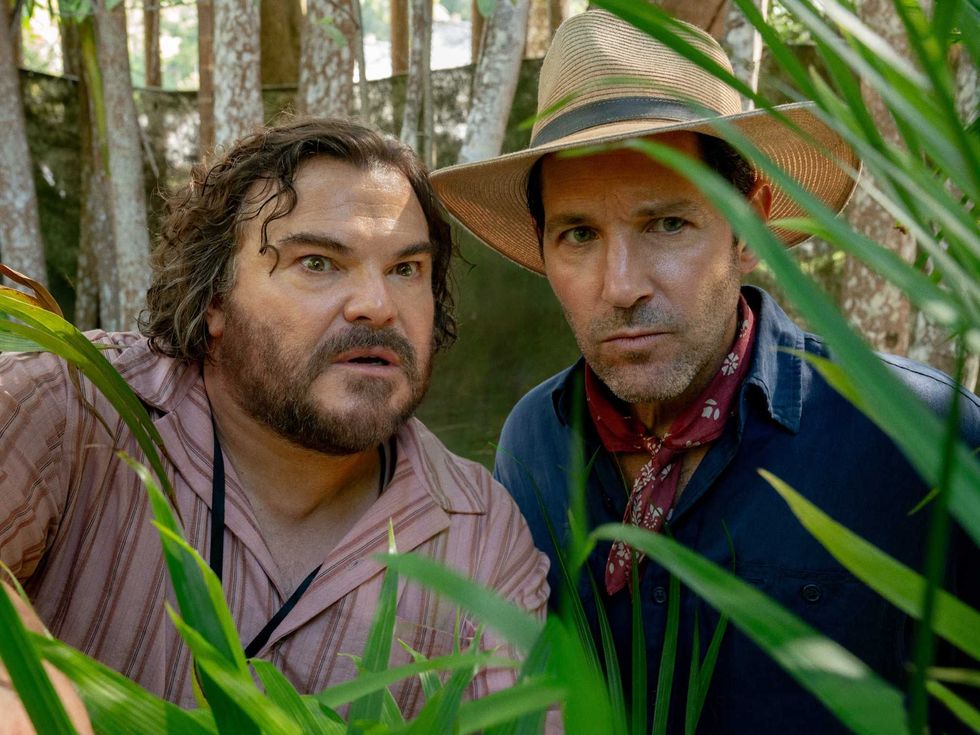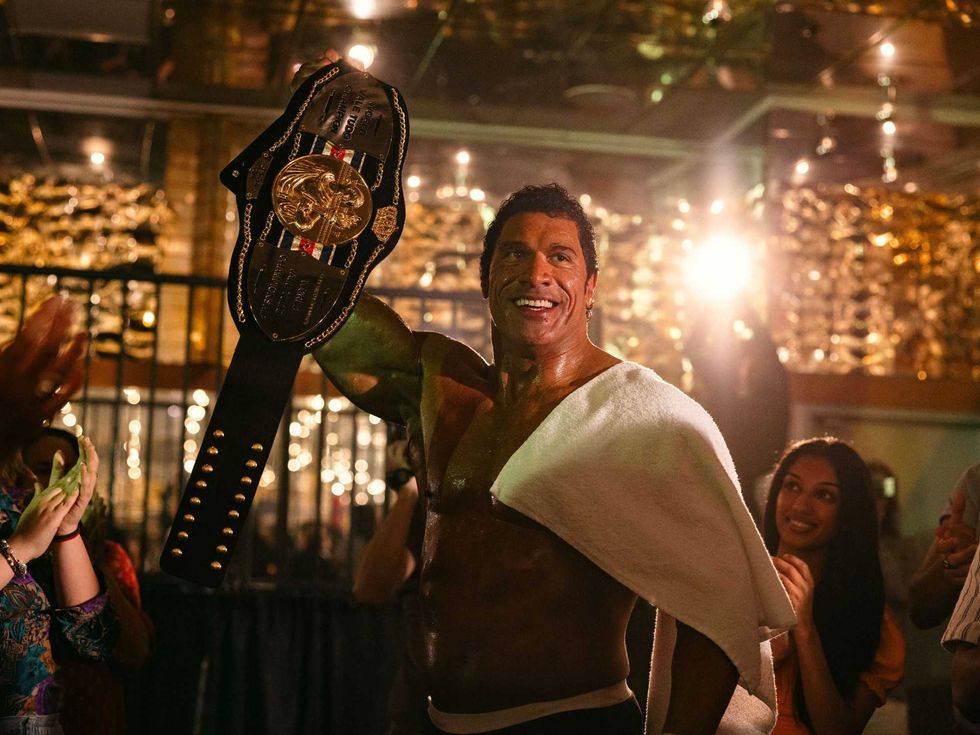The CultureMap Interview
Worse than the Enron crew? Oscar director Alex Gibney tackles Jack Abramoff &Tom DeLay's tag team
 Alex Gibney's new movie focuses on lobbyist Jack Abramoff.
Alex Gibney's new movie focuses on lobbyist Jack Abramoff. Jack Abramoff is still charming in prison.
Jack Abramoff is still charming in prison. Tom DeLay gave Jack Abramoff credibility.
Tom DeLay gave Jack Abramoff credibility.
After getting the goods on Jeffrey Skilling and company in Enron: The Smartest Guys in the Room, then winning an Oscar for focusing on an Afghan cabdriver killed while in U.S. custody in Taxi to the Dark Side, documentary filmmaker Alex Gibney gives us the stranger-than-fiction misadventures of Jack Abramoff — well-connected lobbyist, convicted con artist and former very good friend of Texas' own Tom DeLay — in Casino Jack and the United States of Money.
Aptly described by New York Daily News critic Elizabeth Weitzman as “a movie with as many twists as your average popcorn flick,” Gibney’s fascinating film details the many and varied facets of Abramoff’s checkered career, ranging from his failed efforts as a producer of right-wing B movies (blame him for 1989’s Red Scorpion, in which Red Army assassin Dolph Lundgren sees the light and sides with anti-Communist African rebels) to his high-rolling heyday as embezzler of gaming funds from various American Indian tribes and apologist for sweatshop owners in the Northern Marianas Islands.
Abramoff currently is behind bars, but that didn’t prevent Gibney from interviewing him. And while Gibney himself is busily promoting his film across the country, that didn’t prevent CultureMap from tracking him down to ask our own questions.
CultureMap: In terms of sheer con artistry, how does Jack Abramoff stack up against the guys at Enron?
Alex Gibney: That’s a good question. I’d say in a way he was more outrageous than they were. The brilliance of the folks at Enron was, they had either bought off or conned the insiders — the financial elite. Jack Abramoff was a player who was always playing on the periphery, even though he had one guy inside who made him a credible character.
So he was more outrageous in a way than even the folks at Enron were, which is hard to believe.
CM: Which of his contacts gave him most credibility? Tom DeLay? Karl Rove? Ralph Reed?
AG: DeLay. DeLay made him credible. DeLay made Jack, period. Because he allowed Jack to use DeLay as a marketing tool, to say, “If you want to get to DeLay, you have to get through me.” And that was Jack’s business model. Because DeLay was so powerful, and so much a believer in the money school of politics. It was all about the money.
CM: You were able to interview Abramoff several times while visiting him at his prison. Did he come across as an especially charming fellow?
AG: Yes, no doubt. That was one of the first things that impressed me. He’s a great storyteller, has a very good sense of humor — and he’s a very charming guy. There were times when he sometimes descended into self-pity – and sometimes anger — but very charming. And I think you can’t do what Jack does and not be that charming. So it was very instructive to visit him there.
And that’s why I ended up including a bit more of the audiotapes of Jack pitching the tribes and such. If you can hear him making a sales pitch, it really makes a big difference.
CM: By the way: Stanley Tucci “performs” Jack Abramoff while reading from Abramoff’s statements throughout your film. How did Tucci react when you told him he was the perfect actor for this part?
AG: He howled with laughter — and he loved it. He had so much fun doing it, he was delighted. But, yes, he was amused when I asked him. But he wasn’t afraid. He went there.
CM: When Jack Abramoff looks in the mirror, do you think he sees an evil person?
AG: No. He sees a guy who’s always tried to do the right thing. And just went a little bit too far. A guy who strayed — I think that’s who he sees.
CM: How do you think you would have responded if he’d asked you: “What did I do that was so terribly wrong?”
AG: I told him. I told him I thought one of the worst things he did was by and large legal — which was his role in the Marianas, basically propping up a kind of virtual slave system in a way that was directly profitable to him and to DeLay and others. But it was deeply wrong and immoral. I told him to his face.
CM: It’s a bit startling to see how forthcoming some of your interviewees are. How did you get them to talk with you? Were they impressed by your Oscar?
AG: Well, if you’re talking about (convicted ex-Congressman) Bob Ney and (convicted Congressional staffer) Neil Volz — Bob actually did research on me, and went out and saw some of the films I’ve done. And I’d written to him even while he was in prison. But it wasn’t until he got out that he agreed to talk.
I think he had something on his mind that he wanted to say, and he felt that I would treat him fairly. So he was quite candid, which was great. Same thing with Neil Volz
In some ways, DeLay was candid, too. He was candid about his political beliefs. But he was also lying when he told me that Jack Abramoff was just another lobbyist. So I don’t think he was candid in the same way that Bob and Neil were.
CM: You know, if Hitler would have gotten into art school, or Castro would have made it into the Major Leagues, this world would be a very different place. If Red Scorpion would have been a big hit, do you think Jack Abramoff would still be making action movies with his brother?
AG: Yes. I think he would be. And, yes, it’s one of those moments when you think, “If only …” If only the action sequences had been a little bit better. But I have to tell you, what I didn’t really realize when I started the film is that, when you go back and look at Red Scorpion, it’s part of a rare genre, which is the ideological action film.
It’s like John Milius’ Red Dawn, part of the same school. There was a lot of ideology in that film. So there was a lot of proselytizing even while he was trying to make an action movie. There was a Red Scorpion 2 (produced as a direct-to-video title). But just think if there would have been a Red Scorpion 3 or 4. Just think of all the pain and anguish we would have been spared.











